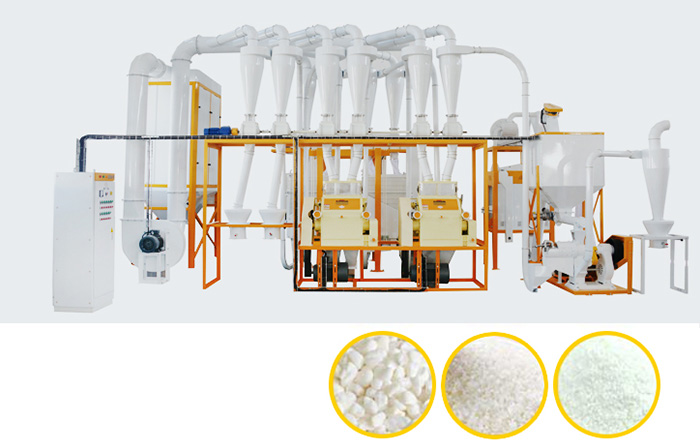Can the automatic flour mill machine process different types of grains?
In the world of modern convenience, automatic flour mill plant has revolutionized the way grains are processed. But can these machines handle the diverse array of grains available? Let's delve into the intricacies of automatic flour mill machines to understand their capabilities.
Automatic flour mill machines are marvels of engineering designed to efficiently process grains into flour. These machines come in various sizes and capacities, catering to the needs of both small-scale and industrial operations. Equipped with advanced technology, they streamline the milling process, saving time and effort while ensuring consistent quality.

Processing Different Types of Grains
One of the most common questions regarding automatic flour mill machines is whether they can handle different types of grains. The answer is a resounding yes! These machines are versatile enough to process a wide range of grains, including wheat, corn, rice, oats, barley, and more. Whether you're baking bread, making pasta, or preparing breakfast cereal, an automatic flour mill machine can meet your needs.
Wheat
Wheat is perhaps the most common grain processed by automatic flour mill machines. From soft wheat used in pastry flour to hard wheat for bread flour, these machines can adjust their settings to produce the desired consistency and texture.
Corn
Corn, another staple grain, is easily processed by automatic flour mill machines. Whether you're grinding cornmeal for baking or producing corn flour for tortillas, these machines can efficiently handle the task, ensuring a uniform grind every time.
Rice
Rice, a dietary staple for millions around the world, can also be processed by automatic flour mill machines. Whether you're milling white rice, brown rice, or specialty rice varieties, these machines can produce finely ground flour suitable for various culinary applications.
Oats
Oats are a nutritious grain commonly used in breakfast cereals, baked goods, and granola bars. Automatic flour mill machine can process oats into oat flour, providing a gluten-free alternative for those with dietary restrictions.
Barley
Barley, often used in soups, stews, and brewing, can also be milled into flour using automatic flour mill machines. Whether you're making barley bread or incorporating barley flour into recipes, these machines can handle the task with ease.
Advantages of Using Automatic Flour Mill Machines
The versatility of automatic flour milling machines offers several advantages for both home cooks and commercial producers:
Efficiency: These machines streamline the milling process, saving time and labor.
Consistency: Automatic settings ensure consistent quality and texture in the flour produced.
Customization: Adjustable settings allow users to produce flour with varying degrees of fineness.
Versatility: The ability to process a wide range of grains makes these machines indispensable in any kitchen or production facility.
Conclusion
In conclusion, automatic flour mill machines are capable of processing a diverse array of grains, making them indispensable tools for home cooks, bakeries, and food production facilities. Whether you're grinding wheat for bread, corn for tortillas, or oats for gluten-free baking, these machines offer efficiency, consistency, and versatility. With their advanced technology and adjustable settings, they can meet the needs of any culinary endeavor.
评论
发表评论